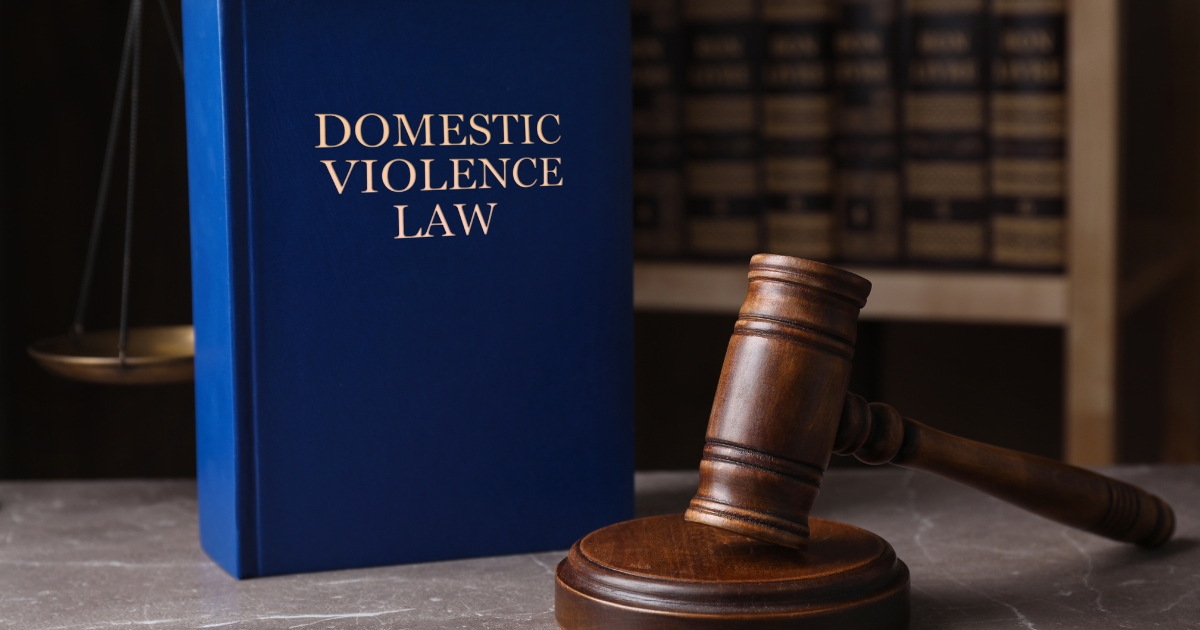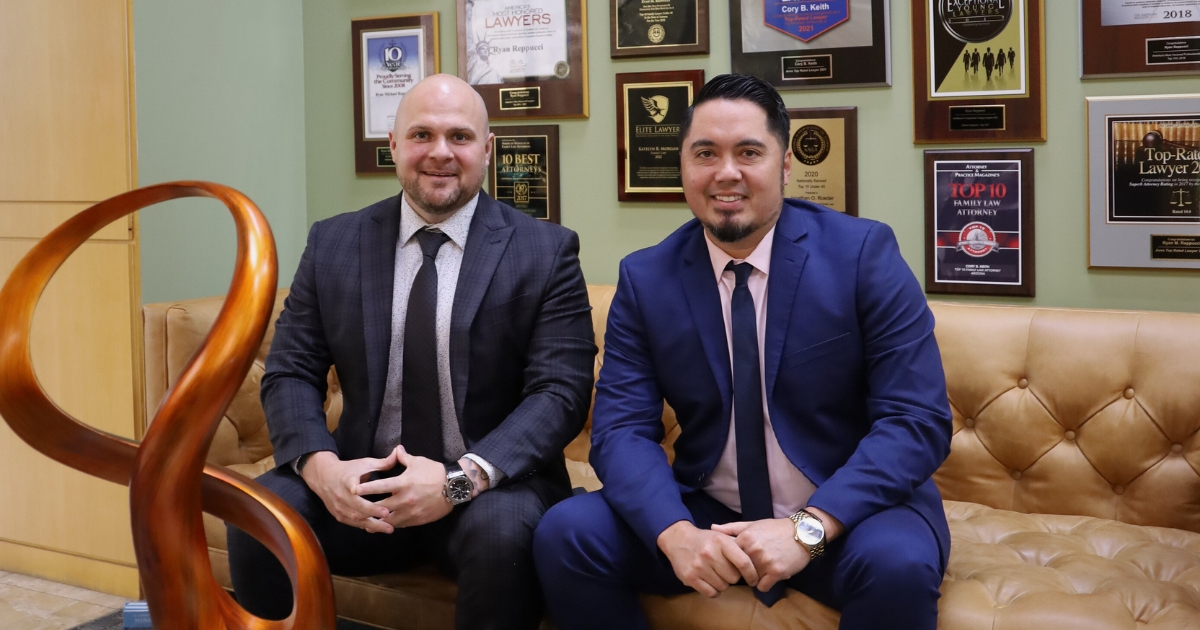Divorce is challenging no matter the circumstances because it affects the lives of everyone involved. This is especially true when it comes to children. However, it can be particularly heartbreaking when a relationship is plagued by domestic abuse or others have been victimized by one of the adults in the household. If you have children and are facing a divorce that will require child custody arrangements with a spouse who has been accused of or charged with domestic abuse, there is no doubt you are seriously concerned about the welfare of your children’s physical and mental health.
Divorce and Domestic Abuse
If you have determined that divorce will benefit you and your children because of the domestic abuse in your household, you must now make important choices when it comes to the care of your children. Keep in mind that divorce, even in an unstable or abusive family, is still potentially traumatic for young people. Children may experience strong feelings such as anger, confusion, fear, sadness, and even guilt.
In addition, domestic abuse can complicate divorce and child custody proceedings in Arizona. Legally speaking, it has wide-ranging implications for how terminating a marriage and deciding who gets custody of the children will play out in the courts. Accusations or actual charges of domestic abuse are serious, and they impact child custody orders in Arizona in a multitude of ways.
Even if the alleged abuser is innocent, accusations or charges can affect their reputation and other relationships in their life, both personal and professional. Domestic violence accusations or charges can also impact an individual’s ability to find gainful employment or housing and can complicate potential changes to child custody orders. Learn more about domestic abuse in Arizona and its significance regarding your divorce or child custody case, including child custody orders, visitation rights, and more.
What Is Domestic Abuse?

Although domestic abuse is often referred to as “domestic violence,” domestic abuse includes more than just physical abuse. It can encompass many different kinds of conduct that impact the well-being of children and adult family members. Many victims of domestic abuse mistakenly believe they must suffer physical harm, even visible injuries or scarring, in order to claim they are victims of abuse. This is not accurate as it excludes domestic abuse that damages the victim’s mental health.
Abusive behavior towards another member of the household is considered domestic abuse, whether it is physical, sexual, psychological, emotional, or financial. Certainly, more obvious examples of abuse, such as physical assault, threats, harassment, intimidation, or stalking, can lead to the issuance of a protective order against the abuser. However, even if the abuse does not occur in person but rather over the internet or telephone, it is still considered abuse under the law.
These examples include instances of abuse like the sexual assault of a family or household member or threatening a family or household member with harm in such a manner that would cause them to believe they will be subjected to immediate physical injury. Abuse can also consist of behavior patterns that domestic abusers use to make their victims compliant even though they may not suffer physical harm; psychological abuse like this can also compel the Arizona court to issue a protective order for a parent or child, even if the abuse is not physical in nature.
In this way, even certain types of conduct that some would initially deem minor can, in fact, be considered abuse. Domestic abuse of any kind can have serious ramifications for divorce and child custody.
Domestic Violence and Child Custody in Arizona
When a marriage ends, the parents and Arizona Family Court are charged with deciding how to assign physical and legal custody. These two types of custody, known as parenting time and decision-making rights in Arizona, encompass the daily care and most important decisions regarding the child. If one parent was abusive during the relationship, it will be a top priority of the court to determine who should care for and protect the children when that relationship ends.
All custody decisions center around the best interests of the child, not what either parent desires for themselves personally. A child’s best interests include their physical safety but also their emotional and mental well-being and development, and staying with an abusive parent in many situations is not healthy for them. The judge will focus on how well both parents demonstrated their ability to care for their children, and this includes abusive behavior.
According to Arizona statutes, the two important factors in determining child custody are the following:
- Whether there was domestic violence or child abuse
- Whether either parent was convicted of falsely reporting child abuse
Where Can Domestic Violence Victims in AZ Turn for Help?

Arizona law qualifies domestic violence by the conduct listed above. This includes sexual assault, physical injury, the attempt to physically or sexually assault a family or household member, instilling fear in household members or family members so that they believe they will be physically harmed, and showing repeated, abusive behaviors. Proof of abuse enables the Arizona court system to issue a protective order to the victims, whether they are children, parents, or even other members of the household.
Sadly, many victims of domestic abuse are reluctant to recognize or report the experiences they have been subjected to. They may believe the person may change in the future or that their abuser has valid reasons for being abusive. Alternatively, many abuse victims fear further harm from their abusers should they report the issue. If you are experiencing domestic abuse, there is hope: there are legal and social services available through the state that can help.
There are numerous non-profit organizations that can assist victims of domestic violence. A New Leaf provides a list of organizations that offer direct services, like housing and counseling; the Arizona Coalition to End Sexual and Domestic Violence also lists information and resources. Additionally, the state-run Arizona Department of Economic Security offers a Domestic Violence Program for children and adults who have been victimized, and the Arizona Department of Health Services provides contact information and facts, including hotline numbers, for victims. Victims are also encouraged to reach out via the National Domestic Violence Hotline at 1-800-799-7233, which is available on a 24/7 basis.
What Relationships in AZ Can Be Affected by Domestic Abuse?
There are several different types of relationships in Arizona that can qualify for domestic abuse allegations, accusations, or charges when it pertains to child custody arrangements. Remember that domestic abuse can include many types of acts, not just assault. AZ law states that domestic violence can also be acts of trespassing, intimidation, stalking, kidnapping, harassment, threats, and unlawful imprisonment. Abuse can also be electronic in nature, as well as written, telephonic, and personal.
Family and household members who can be victims and therefore afforded protection under the law are the following types of individuals and relationships:
- Children
- Current and former spouses
- People who live together
- People with a child together
- People related by blood or marriage
- People who are or were romantically and/or sexually involved
- Relationships where someone is pregnant with the other person’s child
The judge will look at the following factors:
- The nature of the relationship
- The length of the relationship
- How frequently the partners interacted with each other
- If the relationship has ended, the length of time that has passed
Effects of Domestic Violence Charges on Child Custody in AZ

Child custody cases and Arizona law are centered around protecting children from any possible harm. A family court judge will look at many aspects of the parents’ lives and personal histories to make a ruling based on the best interest of a child. Factors the judge will consider include their home life experiences, the parent’s employment status and history, and what the parents’ relationship with their children is like. Accusations or charges of domestic violence are serious issues the judge must take into account. They must determine if the child or children will, in fact, be safe in the custody of this parent, even if no legal charges were filed, and if so, in exactly which situations will the child remain safe?
Domestic Violence, Parenting Time, and Decision-Making Rights
The two types of child custody in Arizona are physical custody and legal custody. Physical custody is referred to as parenting time in Arizona and describes how much time each parent spends with the child as well as the primary residence of the child, where they receive everyday care and necessities such as bathing, feeding, and clothing. Legal custody is referred to as legal decision-making rights and involves the right of a parent to make important decisions for their child concerning the child’s health and education. This can include where the child or children will attend school, where they will receive health care, and other types of services that are important to the family, such as religious education and extracurricular activities.
The judge’s duty is to determine the circumstances that will meet the best interests of the child regarding both parenting time and decision-making rights. Such determinations are paramount to the safety of the child as well as their emotional, mental, and social development. A judge will consider whether the continued involvement of the abusive parent will negatively affect the child’s living situation as well as the decisions made about their care.
Evidence or Reporting of Domestic Violence and Custody Arrangements
If there is evidence of domestic violence or child abuse or evidence of a false abuse report, the judge must take this into account. They must decide, based on the evidence, the environment where the child will be free from abuse, whether real or potential. If domestic violence has, in fact, occurred and been reported, a parent is much less likely to receive parenting time and may also be prevented from sharing decision-making responsibilities for the children.
The court uses various resources to inform its rulings. The judge will peruse police records and medical records, as well as rulings from other courts, if any exist. They may also rely on witness testimony, child protective services reports, school records, and records from domestic violence shelters. If the judge finds that domestic abuse has occurred, even if it is not physical in nature, they will make it a top priority to protect all the victims of this abuse.
Domestic Violence Charges and Visitation Rights
In order to obtain visitation rights after a domestic violence charge, the parent charged must prove to the courts that their child or children will be safe under their care. Depending on the specific circumstances of each case and the types of abusive acts committed against the children and any other household members, the judge may be legally prevented from awarding joint custody. Custody then becomes the responsibility of the other parent under the law – a situation known as sole custody. Be aware that even if the domestic violence charge does not directly involve the child or children, the abusive parent’s custody and visitation rights can still be denied or extremely limited to protect the best interests of the child.
If a judge rules that the parent charged with domestic abuse may receive limited visitation, this can include the following stipulations:
- Mandatory drug and alcohol tests prior to visitation
- Supervised visits with a family member or social worker
- Payment of bond to promote the child’s safe return
- No overnight visits
The court will consider the following factors for the accused or charged parent:
- Whether the parent is under a legal domestic violence protection order
- Whether the parent has completed ordered counseling, such as batterer’s prevention or alcohol or drug abuse education
- Whether the parent can demonstrate that their custody is in the child’s best interests
How Can Domestic Violence Charges Affect Child Custody Orders?

A judge who determines that domestic violence has occurred will prioritize protecting the health and safety of both the parent and the children. The parent guilty of abuse is typically not given any parenting time (physical custody) until they can successfully show the judge that their presence with the child and former spouse will not endanger them in any way or have a negative impact on the mental well-being and social-emotional development of the child.
If the judge does, in fact, award any parenting time to the abusive parent, it will most likely be in the form of visitation instead of physical custody. As mentioned, visitation will likely come with certain stipulations designed to explicitly protect the spouse and children from abuse and danger. For example, the judge may rule that any parenting time for the abusive spouse must take place in a protected setting, like a police station lobby; it may also require supervision by a member of social services or another family member. If the abusive parent has a history of drugs or alcohol, any overnight custody may be banned. The parent will likely be ordered to abstain from consumption of these substances within 24 hours of parenting time.
Domestic violence charges are a serious matter in family court and can have drastic effects on child custody orders, whether altering them with numerous, specific stipulations or eliminating them completely until certain terms are met. Any person who is accused or charged with domestic abuse should know they will not have access to parenting time with their children under their own terms, and victims of abuse should feel at ease knowing the judge will make it a top priority to ensure their safety at all times.
Contact The Valley Law Group Today

Domestic abuse can complicate a child custody case, but there are resources available to improve the outcome of your case and ensure your and your children’s safety. We understand parents’ desire for fair and safe custody arrangements, access to visitation rights, and the assurance of adequate parenting time. Contact The Valley Law Group today for a free consultation so that we can help you achieve the best possible outcome in your case.
Editor’s Note: This article was originally published Mar 24, 2021 and has been updated February 26, 2024.

Jonathan Roeder, Founder/Director of Marketing of The Valley Law Group, is an Arizona native who has dedicated his life and career to the service of others. After graduating salutatorian of his high school class, Jonathan attended beautiful and prestigious Pepperdine University, where he majored in Political Science. During his tenure at Pepperdine University, his passion for helping others grew after securing a clinical position with a residential treatment center for juveniles with substance addictions. Post-graduation, Jonathan returned to Arizona and served as a residential manager for mentally and physically disabled homes.

